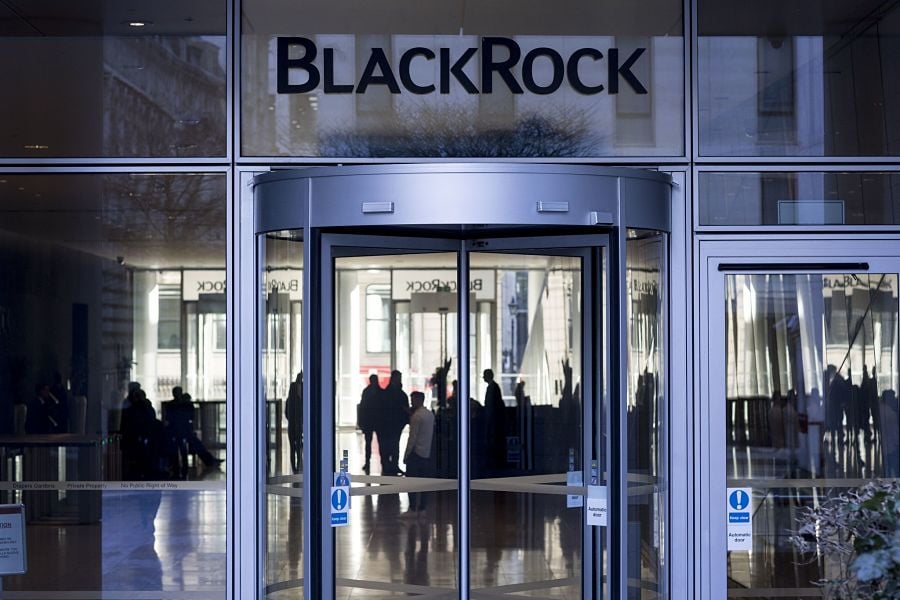

Larry Fink, chief executive of BlackRock, said the most difficult part of the running the giant asset management firm in the midst of a global pandemic has been maintaining the “retention of our culture.”
Speaking Thursday morning at the Morningstar virtual conference, Fink said the disruptions and adjustments related to remote work has had minimal impact on business operations. But with most of the company working remotely, “I’m still not sure how we’ll we’re doing on a cultural basis.”
With that said, Fink admitted the mega asset manager has been chugging along quite nicely even if the future of the business and the industry remains uncertain.
“We have 400 young people who joined our workforce in July and have never been to the office,” he said.
Like the rest of the financial services industry, Fink said BlackRock has been realizing some silver linings of remote-work policies, and he’s already looking toward the potential impacts from COVID-19.
“Many issues will be tested over time if we’re working remotely for a longer period,” he said.
BlackRock is slowly transitioning about 30% of its workforce at main offices in San Francisco, New York and London back into offices. And Fink said he plans to start going to the office about three days a week starting next week.
But the long-term outlook is for a “new paradigm,” he said.
“I don’t believe BlackRock will ever be 100% back in the office, and I don’t believe we will be the same operational firm as we were pre-COVID,” he said. “It’s gonna be a new workforce and a new paradigm, but I believe it will be a better paradigm with less congestion in cities, and less pollution.”
On general investment management topics, Fink also sees a state of constant change. Asked about government debt and deficit levels, Fink said he doesn’t have short-term concerns, but he “probably” does have concerns longer term.
“In the short run in the U.S., we need to continue to increase our deficits,” he said. “Covid has accelerated the big macro trends. Some industries have many job losses, and Amazon is announcing 100,000 new jobs.”
On the decade-long shift by investors from active management to passive index-based investing, Fink offered an alternate perspective that the flow of assets is actually active management is disguise.
“What we’re witnessing in the past few years in the growth of ETFs is not passive investing, we’re seeing more active investors use passive ETFs to get their active exposure,” he said. “One of the real myths is that everyone investing in passive ETFs are passive investors. They are not.”
Then there’s the growing push in asset management toward environmental, social and governance investing, an area where Fink as become a vocal proponent. “The existential health risk of COVID has only made climate risk a bigger component,” he said.
At BlackRock, that increased focused tallied up to inflows into sustainable ETFs for the first six months of 2020 surpassing the flows into the category for all of 2019. Fink said the pedal is to the floor when it comes to ESG investing.
“We are committed by the end of 2020 to have all our portfolios integrated to ESG,” he said. “Climate risk is investment risk.”
When challenged, however, Fink said BlackRock won’t be altering the makeup of major broad market indexes to suit any particular ESG objective.
“This is not our money; our job is to show investors what climate risk does to portfolios, and to educate and persuade, but our job is to always be a fiduciary,” he said. “I’m an environmentalist. I understand what the environmentalists are asking for. Yet if they truly want to make a difference, they need to go to the asset owners. When customers want the S&P 500, they don’t want the S&P 494.”

The leadership changes coming in June, which also include wealth management and digital unit heads, come as the firm pushes to offer more comprehensive services.

Strategist sees relatively little risk of the university losing its tax-exempt status, which could pose opportunity for investors with a "longer time horizon."

As the next generation of investors take their turn, advisors have to strike a fine balance between embracing new technology and building human connections.

IFG works with 550 producing advisors and generates about $325 million in annual revenue, said Dave Fischer, the company's co-founder and chief marketing officer.

Five new RIAs are joining the industry coalition promoting firm-level impact across workforce, client, community and environmental goals.
RIAs face rising regulatory pressure in 2025. Forward-looking firms are responding with embedded technology, not more paperwork.
As inheritances are set to reshape client portfolios and next-gen heirs demand digital-first experiences, firms are retooling their wealth tech stacks and succession models in real time.
